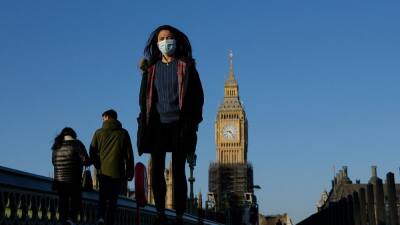Johnson’s Germany comparison highlights UK’s low sick pay
Asked this week about whether his move to drop Covid isolation requirements would drive infectious workers into the office, Boris Johnson said UK workers should learn from their German counterparts and stay home when unwell.
The prime minister did not mention the stark differences in the support available for British workers compared with Germany and the rest of the world, and whether this might explain their reluctance to take a sick day.
Employers’ groups have warned that the UK’s statutory sick pay regime is among the least generous in Europe, and steps by the government to scale back support as part of the “living with Covid” approach Johnson was announcing on Monday could discourage those who catch the virus from staying at home.
Under the new strategy, support payments of £500 for people on low-incomes in England will end from Thursday when the legal requirement to self-isolate is scrapped. A month later, on 24 March, workers who are off sick will need to once again wait for four days of absence through illness to claim statutory sick pay, rather than from day one, reverting to pre-pandemic rules.
Johnson told the No 10 briefing to announce the plan: “I’ve often heard it said over the last couple of years that we have a habit of going back to work, or going into work, when we’re not well. And people contrast that with Germany for instance where, I’m told, they’re much more disciplined about not going to work if you’re sick.”
Germany has one of the best sick pay packages among all of the OECD group of leading global economies, with laws requiring employers to pay staff 100% of wages for the first six weeks of sickness. By contrast the UK has one of the lowest – at just £96.35 a week it is worth less than a quarter of a
Read more on theguardian.com
















